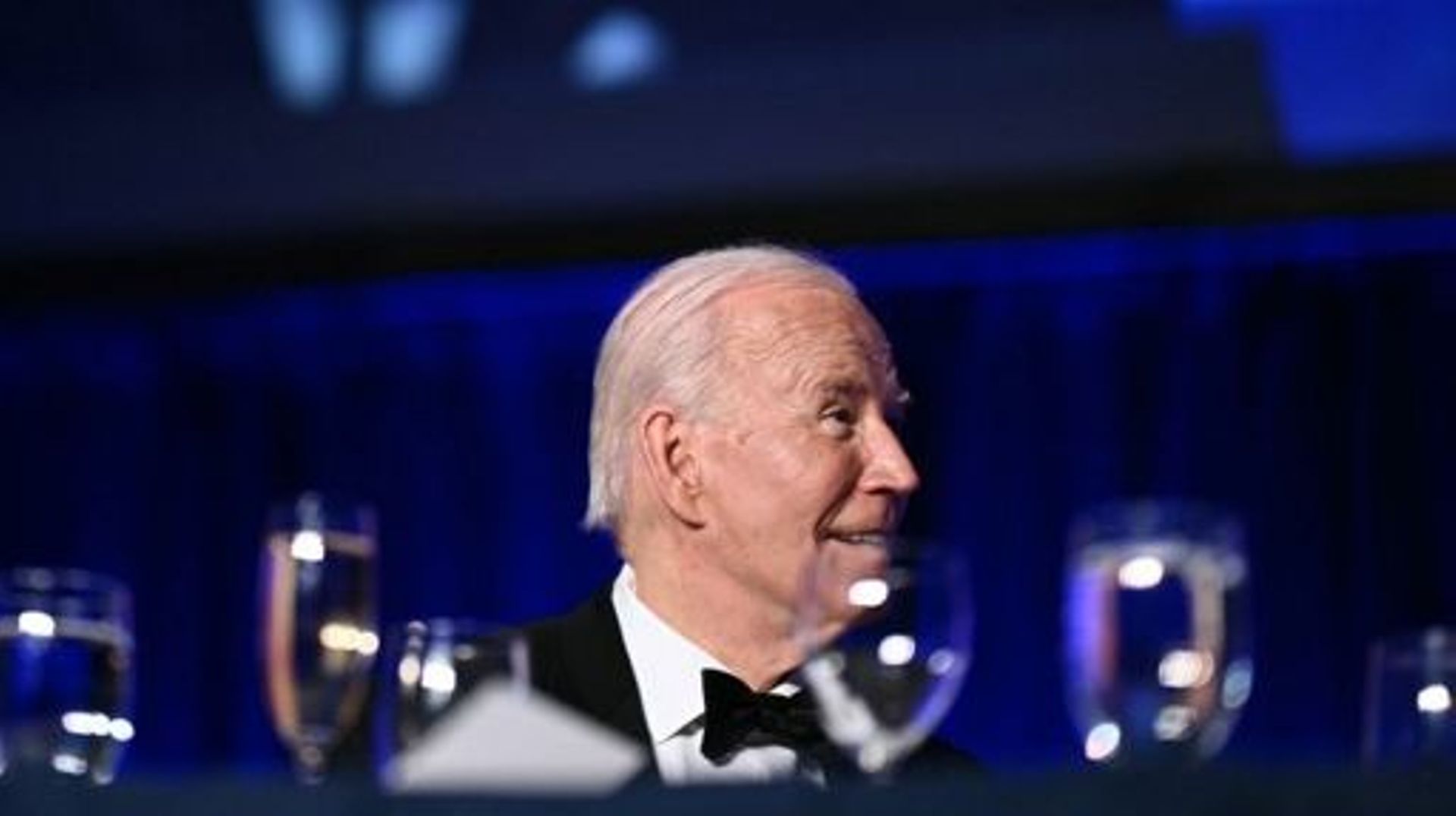Amid Protests and Political Satire, Biden Jabs at Trump During High-Profile Media Dinner
As laughter and applause echoed through a grand hotel, and while protestors voiced their dissent outside, President Biden took center stage, likening his political rival to a child.
Published April 30, 2024 - 16:04pm

Image recovered from rtbf.be
At the White House Correspondents' Dinner, a century-old tradition celebrating the confluence of media and politics, President Joe Biden stepped up to the podium, balancing humor with a poignant call for political sincerity. In a self-deprecating manner, he addressed his age while simultaneously taking swings at his predecessor, Donald Trump, whom he playfully compared to a 'six-year-old child' amidst the formalities of the high-profile gala evening.
The event, which also saw protests regarding the Gaza conflict, was met with a lighter tone inside, focused more on political jabs than on the ongoing international crises. This juxtaposition highlighted both the disconnect and the intersection between political theater and the weightier issues at play beyond the hotel's opulent walls.
Outside the Washington Hilton, chants of 'Shame on you!' clashed with the laughter indoors as demonstrators, many dressed to mimic press vests like those worn by reporters in conflict zones, rallied to call out what they deem the US's distorted portrayal of the Gaza situation and to confront journalists and celebrities arriving for the dinner. Protesters implored the attendees to recognize the 'truth of the genocide' in Gaza and condemn the political circumstances leading to the escalation of violence. The mostly youth-led protest, signs aloft bearing messages about media lies and journalistic peril in conflict areas, underscored a growing disconnect between the evening's revelry and the stark realities faced by those in Gaza and Palestinians at large.
Within the security of thick hotel walls, Biden's comedic performance included self-referential quips about his age next to his allusion to Trump as a child, as well as witticisms regarding the Stormy Daniels scandal. Despite the levity, Biden's speech also encapsulated a call to media and public alike to focus on the critical issues at stake, particularly as the United States approaches another election cycle. Yet, despite the array of jokes, the issue of Gaza — a rising point of contention for the Biden administration — notably remained unaddressed.
The stark contrast between the gala's humorous proceedings and the protests outside raises questions about the role of political satire and the media's responsibility in the context of grave humanitarian and political challenges. As political tensions mount and protests continue, particularly across university campuses, the way leaders and journalists respond becomes increasingly significant, carrying implications for the upcoming elections and the standing of the US on the global stage.
As President Joe Biden delivered his remarks, the White House Correspondents' Dinner served not only as a platform for political commentary but also as an event ripe with historical significance. It has been a forum where journalists, politicians, and celebrities mingle, with each administration setting its own tone for the evening. Yet, beneath the veneer of camaraderie and satire, there lie deeper issues that resonate within the national and international discourse.
The dinner, traditionally a break from the fast-paced and often adversarial world of politics and press, allows for a rare moment of reflection. For journalists, it is an opportunity to celebrate free speech and the role of a free press in holding the powerful to account, principles that are particularly salient amidst the rise of authoritarianism and shrinking press freedoms around the world. Yet, it's in these celebratory moments that the gap between the narratives propagated in these esteemed halls and the on-the-ground realities become all the more apparent.
Inside, celebrities schmoozed with politicians, a reminder of the complex interplay between power, media, and entertainment. Speeches poked fun at the political circus, yet the humor did not mask the collective understanding of the pivotal role the press plays in shaping public opinion and policy. While the dinner is known for its roast-like atmosphere, the incumbent President Biden did not shy away from acknowledging the critical role of the journalists: a testament to the enduring power and importance of the Fourth Estate.
But it was just outside those very walls where the dichotomy of the occasion was most pronounced. The protesters' presence and their poignant messages sought to penetrate the bubble of the Beltway, urging those in attendance to not ignore the plights of the oppressed, such as those in Gaza. Their advocacy and stark reminders of the suffering beyond American shores send a clear message that even as we engage in tradition and humor, there exist non-negotiable moral and ethical imperatives that demand attention and action.
It is within these moments of national introspection that the role of the media is emphasized as an instrument for change and progressivism. The juxtaposition of festivity and fervent protest serves as a reminder of the societal responsibility to balance political criticism with active engagement in the issues that shape our world. As the laughter from within the Hilton fades, the echoes of the protesters’ cries linger, challenging attendees and the wider public to consider the impact of their words — and the silence between them — on the broader narrative of human rights and justice.
In the wake of the Correspondents' Dinner, the multifaceted role of the media in political life and public discourse remains clear. As the evening comes to a close, journalists return to their newsrooms, the politicians to their offices, and the celebrities to their respective spheres, each carrying with them the weight of the messages conveyed both inside and outside the gala. As the year unfolds, the influence of this event and the conversations it sparked will continue to be felt, influencing the tenor of political dialogues and the focus of journalistic endeavors as the nation marches towards the upcoming electoral season and beyond.







